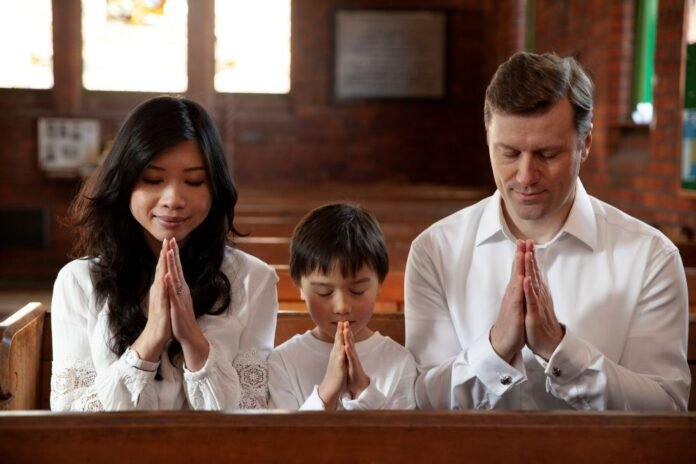Introduction
When a person dies without writing a valid Will, the law takes over and decides how their property will be divided. This process is called intestate succession. In India, the rules of intestate succession vary for different individuals. They vary based on the deceased’s religion. For Indian Christians, intestate succession is governed by the Indian Succession Act, 1925. This law provides a uniform system for how a Christian person’s assets will be shared among their heirs. This article explains the basic rules that apply to Christians in India when they die without a Will. It covers who is considered a legal heir, how the estate is distributed, and which sections of the law apply.
Who is Considered a Christian?
Under Indian law, any person who follows the Christian religion is treated as a Christian for the purpose of succession. This includes Catholics, Protestants, and members of other Christian denominations. The Indian Succession Act treats all Christians equally unless a special custom has been legally recognised that says otherwise.
Applicable Law: Indian Succession Act, 1925
The law that applies to Christians in cases of intestate succession is the Indian Succession Act, 1925, particularly Part V (Sections 31 to 49). These rules come into effect only if the person dies without making a Will. If a valid Will exists, the property will be passed on as per the instructions in that Will.
General Principles of Christian Intestate Succession
When a Christian person dies without a Will, their property is shared among their legal heirs. These may include the spouse, children, grandchildren, parents, siblings, and other close relatives. The law gives a clear priority of who gets how much, depending on who survives the deceased.
Rules of Distribution
1. If the Person is Survived Only by the Spouse
As per Section 33(a) of the Act:
If a person dies leaving only a spouse (husband or wife), but no children or grandchildren, then the spouse gets the entire property.
This rule protects the surviving spouse, ensuring that they are financially supported and do not have to share the estate with extended family.
2. If the Person is Survived by Spouse and Children or Grandchildren
According to Section 33(b):
If the deceased is survived by a spouse and lineal descendants (like children or grandchildren), then:
-
One-third of the property goes to the spouse.
-
The remaining two-thirds is shared equally among the children. If a child has died earlier, their children (i.e., grandchildren) will get that share.
Example:
Suppose Mr. X dies leaving behind his wife and two children. His property will be divided like this:
-
Wife: 1/3 share
-
Each child: 1/3 of the remaining 2/3 (which means 1/3 each)
3. If Only Children or Grandchildren Survive (No Spouse)
If the person dies leaving only children or grandchildren, and no surviving spouse, then the entire estate is shared equally among the children.
If a child had died earlier, but has children of their own, those grandchildren will take their parent’s share.
This is covered under Section 42 of the Act.
4. If No Spouse or Descendants Survive
When the deceased leaves behind no spouse and no children, the property is inherited by other close relatives in this order:
A. Father
If the father is alive, he inherits the entire property.
B. Mother and Siblings
If the father has passed away, then the property is shared equally among the mother, brothers, and sisters of the deceased.
C. Distant Relatives
If none of the above are alive, then the property is passed on to more distant relatives like uncles, aunts, cousins, nephews, and nieces, depending on who is closest in relation.
These rules are mentioned in Sections 43 to 48 of the Act.
5. If No Legal Heirs ExistIn case the deceased has no legal heirs at all, the law under Section 29 states that the property will go to the government. This is known as escheat.Other Important Rules and ClarificationsAdopted ChildrenIf a Christian has formally adopted a child under a valid law (such as the Juvenile Justice Act), the adopted child can inherit property. However, if the adoption is not legally recognized, the child may not have inheritance rights.Illegitimate ChildrenUnder Christian succession laws, illegitimate children are generally not entitled to inherit property from the deceased parent, unless legitimized by law.Full-Blood vs Half-Blood SiblingsIf both full-blood and half-blood siblings exist, the law gives preference to full-blood siblings in inheritance matters.Predeceased ChildrenIf a child dies before the parent but leaves behind children, those grandchildren will inherit the share that their deceased parent would have received. This follows the principle of representation.
Conclusion
The Indian Succession Act, 1925 provides a clear and fair structure for distributing the estate of a Christian who dies without a Will. The law ensures that the spouse and children are given priority, followed by parents, siblings, and other relatives. In cases where no family exists, the property is taken over by the government. Understanding the rules of Christian intestate succession is important not only for legal professionals but also for individuals and families to know their rights. While the law helps in distributing property in a just manner, it is always advisable to prepare a valid Will to ensure that one’s assets are passed on according to their personal wishes.
Also Read:
Rights of undertrial prisoners in India
How To Send A Legal Notice In India

